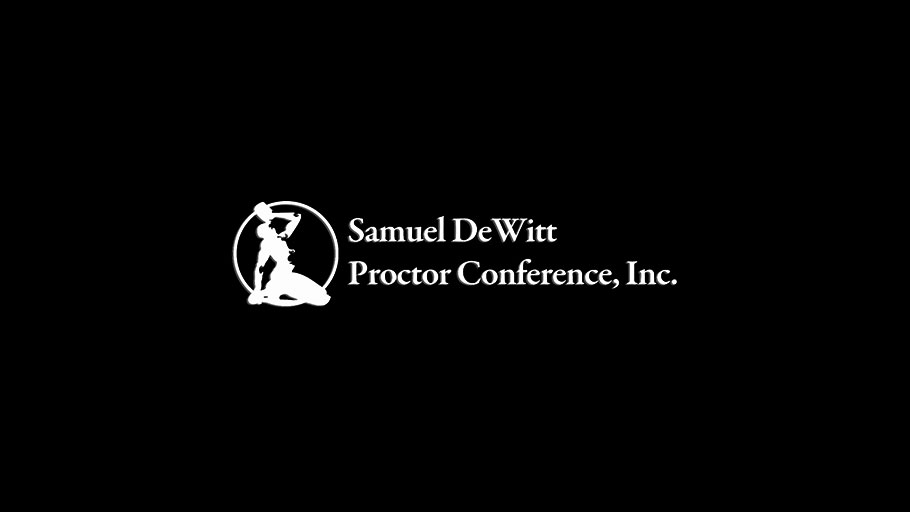The poison that resides in the soul of America is being exposed in this moment of proclamation that Black Lives Matter. It is in this moment that U.S. Congresswoman Sheila Jackson Lee has embraced Rev. Martin Luther King’s “Why We Can’t Wait” as the framing for the passage of HR-40. HR-40 demands remedies and reparations for the centuries of injustice and trauma suffered by African Americans in the United States. The Samuel DeWitt Proctor Conference, Inc. and faith partners affirm the historic and continuing commitment and role the faith community plays in the advancement of reparatory justice and reparations for people of African descent.
In 1894, Ms. Callie House and Rev. Isaiah H. Dickerson, along with four other pastors, launched the Reparations Movement, incorporating the National Ex Slave and Mutual Relief Bounty and Pension Association. And with each generation thereafter, efforts have persisted to advance the call and cause to amend for the wrongs, repair the damage, and reckon with the past to right the future. People of faith are uniquely called and positioned to stay the course.
Voices of the Black church, and recently, over the past twenty years from spaces within the white church, have pierced the silence around the complicity and role of the Church in the Transatlantic Slave Trade system, it’s sacred rhetoric, academic institutions and their enduring consequences. The time for reparations is well overdue.
In his 1964 watershed book, Why We Can’t Wait, Martin Luther King declared: “While no amount of gold could provide adequate compensation for the exploitation of the Negro American down through the centuries, a price could be placed on unpaid wages.”
The late Black theologian ministry leaders like James Hal Cone, Katie Cannon, Gayraud Wilmore, Robina Winbush, James Foreman and Theressa Hoover, to name a few, made the case and call to the Church. Denominations, including the United Church of Christ, Disciples of Christ, Episcopalians and Presbyterians have even offered resolutions of confession, apologies for slavery and /or calls for dealing with reparations. Further, the 2004 Accra Confession attests that the issue of justice and reparations in the United States is also wedded to issues of reparations, debt relief and justice in Africa. In this evidentiary moment of racialized police violence, consequences of a global pandemic and political arguments for authoritarianism over democratic principles, America cannot wait, and the world awaits.
We, the undersigned faith leaders and organizations, declare that the moral compass and agency of religious institutions and leaders must be on the right side of the sacred texts and history. The silence of faith communities, old and new, must be pierced to unleash a new way forward toward reparatory justice and reparations. The evil causes and consequences of enslavement of people of African descent, the truths about the original sins upon which the nation was founded must be acknowledged and addressed.
Reparations requires truth-telling and a historical reckoning, justice not charitable giving, confession and atonement, commitment to non-repeat and restitution in a myriad of ways. The fact that the New York Stock Exchange sits upon a burial ground of enslaved Africans is quite telling and symbolic, but it must be understood that reparations can never be reduced to a heartless apology and a financial transaction. As an issue of justice, reparations is a journey of healing.
We join the efforts of the Samuel DeWitt Proctor Conference, the National African American Reparations Commission and the National Coalition of Blacks for Reparations in America to advance
the cause for reparations and bring the light and works of true healing and justice to this nation. We support HR-40, Congresswoman Sheila Jackson Lee, and the Congressional Black Caucus
as they continue the forward movement of the national legislation.
“We Can’t Wait” because we have waited long enough. For this nation and all who are heirs to its legacy, “This is the Overdue Season!”
Rev. Dr. Iva E. Carruthers
General Secretary, Samuel DeWitt Proctor Conference, Inc. Chicago, IL
Bishop Leah D. Daughtry
Co-chair, Samuel DeWitt Proctor Conference, Inc. National Presiding Prelate, House of Lord Churches
Washington DC
Rev. Dr. Frederick D. Haynes III
Co-chair, Samuel DeWitt Proctor Conference, Inc. Senior Pastor, Friendship West Baptist Church
Dallas, TX
Rev. Dr. William J. Barber II
President, Repairers of the Breach Goldsboro, NC
Rev. Traci Blackmon
Associate General Minister of Justice and Local Church Ministries United Church of Christ
Cleveland, OH
David Crawford
President, McCormick Theological Seminary Chicago, IL
Rev. Ronnie Galvin
Vice President for Racial Equity and the Democratic Economy Democracy Collaborative
Washington, DC
Rev. Dr. Michael Nabors
Senior Pastor, Second Baptist Church Evanston, IL
Bishop Frank Madison Reid III
Ecumenical Officer, A.M.E. Church
Presiding Prelate, Third Episcopal District of the A.M.E. Church Baltimore, MD
Rev. Dr. Robert Turner
Pastor, Vernon Chapel A.M.E. Church Tulsa, OK
Dr. Jim Winkler
President and General Secretary, National Council of Churches USA
Washington, DC















